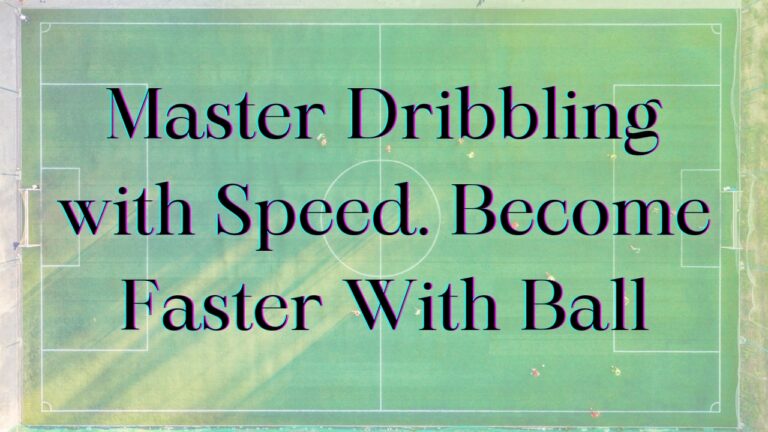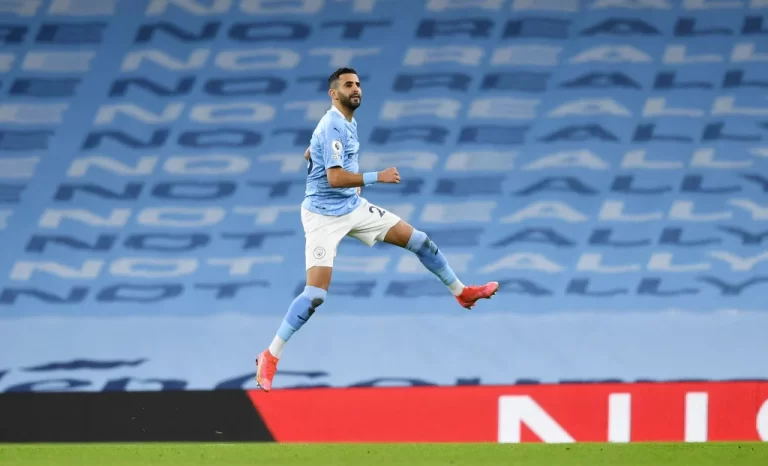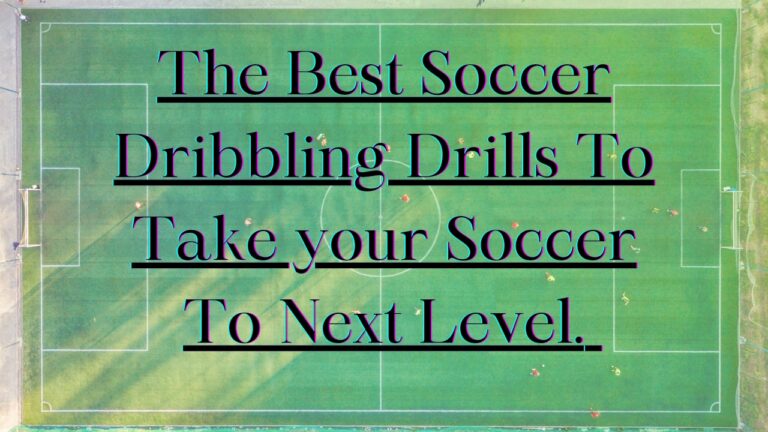Master the Basics First
Being an excellent defender starts with having a solid foundation of fundamental skills. Many young players want to skip ahead to flashy advanced moves, but truly mastering the basics is the key to continued improvement. Here are the core competencies every aspiring soccer defender should focus on first:
Body Positioning and Stance
The stance and positioning of your body on the field are crucial as a defender. Always stay on the balls of your feet, knees bent, and weight balanced, ready to move in any direction. Keep your arms out for balance, but avoid flailing. When engaging with an attacker, try to force them to one side by angling your body. Stay low when backing up or shuffling side-to-side.
Footwork
Smooth footwork helps you stick tight with attacking players. Practice short, choppy shuffles to move laterally and stay square. Perform recovery runs with longer strides to get back into position. Work on developing quick feet with a ladder and skipping drills. The ability to pivot, change direction, and accelerate are essential.
Tackling
When going ground for a tackle, lead with your near-side foot and drive through with your hips behind the slide. Keep your toes up to avoid tripping. Stand tackles require precise timing and blocking with the body. Only go for a tackle when you’re likely to win the ball.
Heading
Head the ball with your forehead and a firm neck to direct clears and make defensive plays on crosses and high balls. Move your entire body behind headers for power. Time jumps accurately, and gets up early to beat opponents. Aim headers low and to the corners when distributing.
Positioning and Zonal Defending
In a zone or man-marking system, recognize where to position yourself relative to the ball, other defenders, and attacking opponents. Communicate constantly to eliminate gaps and avoid being pulled out of position. Cover for teammates when needed and pass on marking duties smoothly.
Cementing these core skills early on will provide a platform for growth as a defender. All the physical and mental attributes in the world can’t make up for a lack of fundamentals. Take the time to ingrain high-level technical prowess before moving on.

Improve Your Speed and Agility
While mastery of the fundamentals is crucial, physical abilities like speed, quickness, and agility also play a massive role in defensive excellence. The modern game demands defenders who can cover large swaths of ground quickly and explosively change direction.
Sprints
Nothing develops raw speed better than sprint work. Include straight-line sprints of various distances in your workouts. Focus on proper form – pumping your arms and driving hard with each step. Allow full recovery between reps.
Ladder Drills
Ladder drills enhance footwork and coordination. Hop in and out of each ladder rung, walk sideways, skip through, and invent agility patterns. Ladders sharpen reflexes and explosive start-stop movements.
Shadow Defending
Visualize defending by shadowing an imaginary attacker’s movements. React as if responding to fakes, cuts, and changes of pace. Shadow defending heightens awareness and reaction time.
Plyometrics
Plyometric exercises like bounding, box jumps and lateral leaps develop the explosive power needed for rapid acceleration and direction changes. Perform these moves with perfect form.
Agility Cones
Set up a series of cones and execute various runs working on deceleration, pivoting, backpedaling, and multi-directional agility. Have a teammate call out the runs randomly or follow a proscribed pattern.
Quick Feet Drills
Quick, light movements with feet shuffling will get your footwork nimble and lightning fast. Use small, flat ladders and focus on minimal ground contact time. Reaction balls and solo fake defender drills also help.
Integrating running formwork, plyometrics, agility cones, ladder drills, and quick feet routines into your training will translate into much-improved speed and change of direction ability on the pitch.

Focus on Anticipation and Reading the Game
The best defenders thrive not just through physical skills, but by reading the game intelligently. Developing your soccer IQ and anticipation abilities will give you a massive edge. Here’s how to elevate your mental game:
Study Opponents
Analyze the tendencies and playing styles of opponents you’ll face. Learn their favorite moves, footedness, and any shortcut dribbling tricks they repeatedly use. Identify and exploit weaknesses.
Visualize Scenarios
Imagine various game situations and scenarios in your mind. Visualize how you would react and make the proper decision in each case. Mental imagery improves reaction time and decision making.
Analyze Game Film
Watch footage of yourself or top defenders. Look for proper positioning and areas you could improve. Breakdown offensive schemes to understand spacing and combinations.
Improve Spatial Awareness
Work on your ability to sense everything on the field around you – the movement of attackers and teammates alike. Peripheral vision drills will help increase field awareness. Communicate constantly.
Make Quick Decisions
Scan the field rapidly and assess options. Learn to make quicker determinations whether to hold your position, step to a ball, or release into a zone as play develops. Don’t second-guess.
Soccer IQ can be honed by studying the game, visualization, film analysis and improved awareness. Smart defenders anticipate play sequences earlier and react quicker. Keep your head on a swivel and embrace the cerebral elements of defending.

Build Strength and Endurance
Defending at a high level requires incredible fitness levels. You need strength to hold off attackers and endless endurance to keep running all game long. Here are some tips for building your physical conditioning:
Lift Weight
Incorporate squats, deadlifts and other compound lower body lifts into your training regimen. Develop core power with planks, pallof presses and weighted crunches. Focus on major muscle groups and proper form.
Include Cardio
Soccer requires tons of running, so train aerobically with rowing, swimming, cycling, or jogging. Fartlek and interval training boosts endurance by mimicking game intensity. Mix in sprints but avoid overtraining speed.
Interval Training
Alternate between periods of high and low-intensity activity. Interval training taxes energy systems similar to real match play. Tailor work-rest ratios to your needs.
Build Core Strength
Strengthening your core improves balance, stability and power generation. Mix in front planks, side planks, hollow holds and other isometric exercises. Yoga helps flexibility.
Improve Mobility
Full range of motion and joint mobility reduces injury risk and enhances movement. Use foam rollers, dynamic stretches, and yoga flows to improve mobility daily.
The demanding nature of defending necessitates immense physical resilience. Blend heavy strength training with energy systems work like sprints and intervals while increasing mobility. Proper programming will make you a complete athletic specimen.

Develop Mental Toughness
Finally, cultivating an unbreakable mindset is a vital complement to your physical and tactical education as a defender. Mental strength allows you to embrace the grittier aspects of defending confidently. Here are some ways to develop mental fortitude:
Embrace 1v1 Battles
Seek out challenging man-on-a-man training drills. Learn to love competing hard in these pressure situations rather than avoid them. Stay committed and fight to the end in every duel.
Focus on Controllables
Don’t worry about referee decisions or teammates’ mistakes – control the controllable. Stay focused on your own performance and effort level throughout each game.
Positive Self-Talk
Replace doubts with positive self-affirmations. Visualize making great plays. Develop pre-game mental rituals and pump yourself up. Battle negative thoughts aggressively.
Bounce Back from Mistakes
Put errors or beatings from tricky attackers behind you instantly. Have a short memory and don’t lose confidence. Analyze mistakes later. Refocus on your next challenge.
Gain Confidence
Preparation breeds confidence. Put in the hard work in training to build trust in your abilities. Take it one play at a time, and success will follow.
Defending can be a thankless task but embracing the physicality and grit with steely resolve separates the best from the rest. Tough it out through adversity and take pride in this crucial role. Your mental toughness will rise to any challenge.
Conclusion
Becoming an elite soccer defender requires dedication across a multitude of areas. Mastering the fundamentals, improving physical abilities, smarts, and conditioning, and developing mental toughness represent a holistic approach to massive improvement.
Key areas to focus on include solidifying core footwork, positioning, and tackling technique first before advancing. Speed and agility can be enhanced through targeted running, plyometrics, and agility drills. Reading the game intelligently through film study, visualization, and awareness drills is invaluable.
Related Post: The 5 Main Types of Defenders in Soccer
Author






